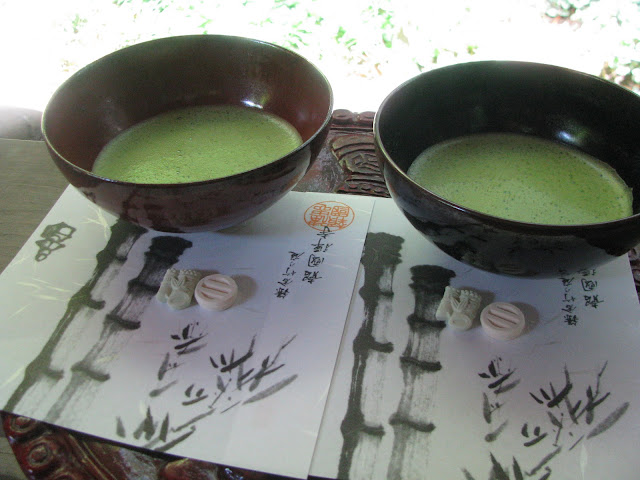Father, oh father, come riddle to meAnother love triangle comes to mind from the movie Eat, Drink, Man, Woman. The main character, the father, has three daughters and the story revolves around their relationships. The father has fallen in love with the neighbor, but the neighbor's mother thinks she is a good match for him creating some difficulties as what matches and what works differs. The love triangle is as old as story.
Come riddle it all as one
And tell me whether to marry fair Ellen
Or bring the brown girl home
The brown girl she has house and land
Fair Ellender she has none
These conundrums of what seems to be a perfect match and what is our heart's desire absorb a lot of energy. The complexity of being human is sometimes so confounding that it can be hard to know for ourselves what it is we truly love and need. Being honest with oneself requires seeing some flaws within and without; we are all full of contradictions and few of us seem willing to reveal this to ourselves or others, but this is where we have the potential for change. Honesty is hard to come by- I do not meant cruel, unkind, expressions that demean others, but in letting a truth come up from the pit of our being as a revealer of our own base motives and not fearing it, not fleeing from the idea that perhaps in the other's story we are reacting not to their recitation but to our interpretation which is ours and not theirs; we need to listen more deeply to ourselves and others. My frustrations with others are usually my frustrations with lack of time or lack of control- I don't have much time to listen and do what I want to do; I can't change what is happening and I can't fix it even though I want to.
My husband is reading to me a "study" quoted on Facebook from The Onion about how Americans charge into things like maniacs when really they should take a deep breath, think of plan, and do the opposite. We assume too much which is where I am trying to go- if we truly listen, if we truly hear, it is usually not what we assume, but this takes time; we need to make time to listen to the people in our lives and to what pings in our inner psyche or gut as we listen- perhaps we would ultimately be less frustrated.
There is a story from many years ago from when the Oakland Naval Hospital pharmacy was being remodeled, it had only one window open with a very long line. A "Mrs. Captain Such and Such" made it a point to announce her title in hopes of securing quicker service only to be reminded by "Mrs. Fleet Admiral Nimitz" that "if I can wait, so can you." One person wanted recognition that they were important, but really everyone is important and busy which is why I appreciated that Mrs. Nimitz spoke up. If only we all spoke the truth to ourselves and others when it could make a difference.























